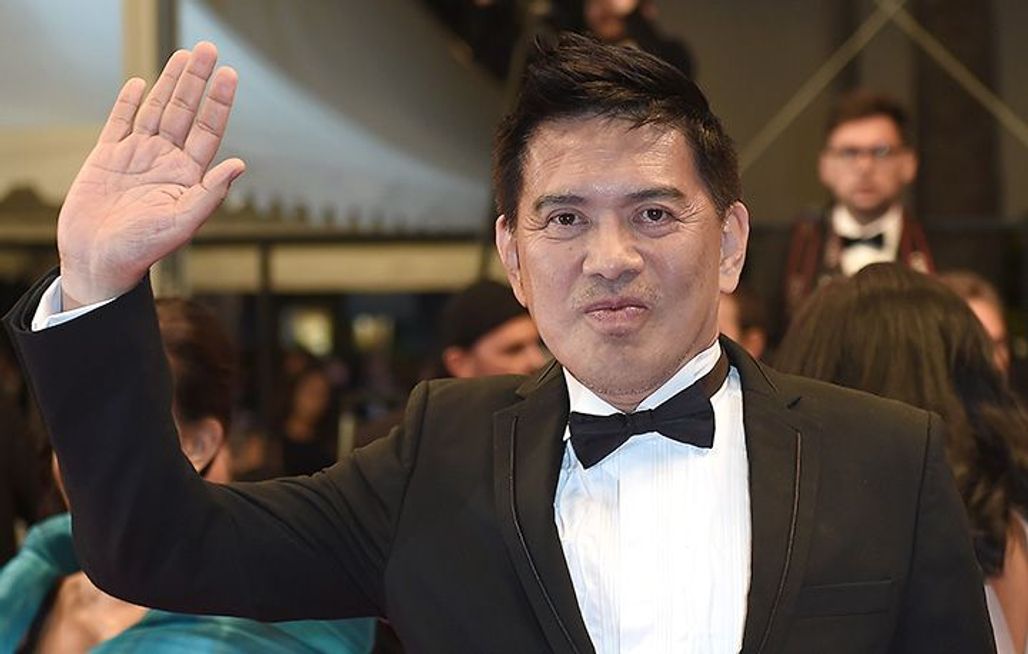
UN CERTAIN REGARD – Taklub, interview with Brillante Mendoza

On 8 November 2013, Typhoon Yolanda (Haiyan) hit the Philippine coastline. 2500 people died in what was one of the most devastating natural disasters in the country’s history. Time may have passed, but Brillante Mendoza has not forgotten. His film Taklub tells the story of three characters for whom the burden of poverty is added to the catastrophe that swept through their lives.
Film still © RR
How did you begin your work on this film?
Right after the super-typhoon Yolanda occurred, people were asking me if would do a film about it. I thought it would be improper and insensitive to make a film exploiting people’s tragic circumstances.
Months later, I was asked by the Department of Environment and Natural Resources if I would make a documentary film about Climate Change.
I suggested coming up with a narrative instead, tackling the issue of climate change, with its consequences as the core message. I thought that using a narrative would create a better impact. So my team started to conduct research in Tacloban, one of the biggest casualties of climate change.
This film is a tribute to the victims and survivors of this tragic event.
Please describe your working method and the atmosphere on the set. Any anecdotes to share?
Pre-production for me is the most crucial part of my film. It is during this stage that everything is conceptualised, planned and organised. If all the aspects of the films have been planned, everything else will follow. The film’s execution and implementation depends on what has been planned and organised during pre-production. Even the post-production depends on the pre-production. This, of course, entails a lot of meetings and brainstorming involving everyone working on the production.
It is during the pre-production phase that everything is laid down on the table. All creative input is considered until we reach a consensus. But I do also allow for significant changes to be made, even if we have already decided on something.
We had a very lengthy meeting before starting the actual shoot. I told my team to immerse themselves and to be sensitive when dealing with the people in Tacloban.
I reminded them that these people have been severely traumatised by this tragic incident, and that we must exercise the utmost care and empathy when interacting with them.
As for my actors, I empowered them to explore and come up with their own interpretation as to how they would portray their roles. I didn’t provide them with dialogues from the script. If they did their assignment well, then they would know what to say and do.
Please share a few words about your actors.
All of my actors were committed to their roles. They all did their assignments by taking the time to immerse themselves and talk to the locals in Tacloban.
Nora Aunor was very cooperative. She interviewed some of the locals and immersed herself fully in the character. She used her instinct to portray the role. She confessed that she could easily relate to the character because she once went through a similar experience, though not as tragic as this one.
Julio Diaz was also into his role. He told me that he identified with the character because he was also going through the same struggle, a search for spiritual clarity.
Lou Veloso is a very competent and dependable actor. It is always a pleasure to work with him.
Aaron Rivera also delivered, especially considering he is the youngest of the cast and a relative neophyte compared to the rest. He is hard-working and was deeply absorbed in his role.
What are your views on the film industry in your country?
I think our film industry is thriving, especially now that the spirit of independent filmmaking is very much alive. Independent filmmakers are multiplying and exploring the world of cinema. This is very positive and encouraging because it challenges our government institutions to see film as an effective tool for promoting social awareness and promoting our sense of patriotism and cultural awakening.
What sources of artistic inspiration have you drawn upon in your work?
Honesty and truth are the main source of artistic inspiration in my work. I always trust my feelings and instinct because they are usually right. I try to fully understand the purpose of the story and use my instinct to translate the story in my film. I make sure that there is always narrative fidelity and narrative coherence in my films. My film is focused on staying faithful to the facts of the story and being coherent in terms of its creative and technical aspects. This will surely create an immediate connection to the audience.
Can you tell us about your next project?
My next project will definitely be focused on the cause of climate change. I want people to be more aware and to do something about this global issue. This is an obligation for each and every one of us. It is about time that we take this issue seriously, before it’s too late.
SCREENINGS
Tuesday 19 May / Debussy Theatre / 2pm – 10.15pm
>> Go to the interactive calendar


